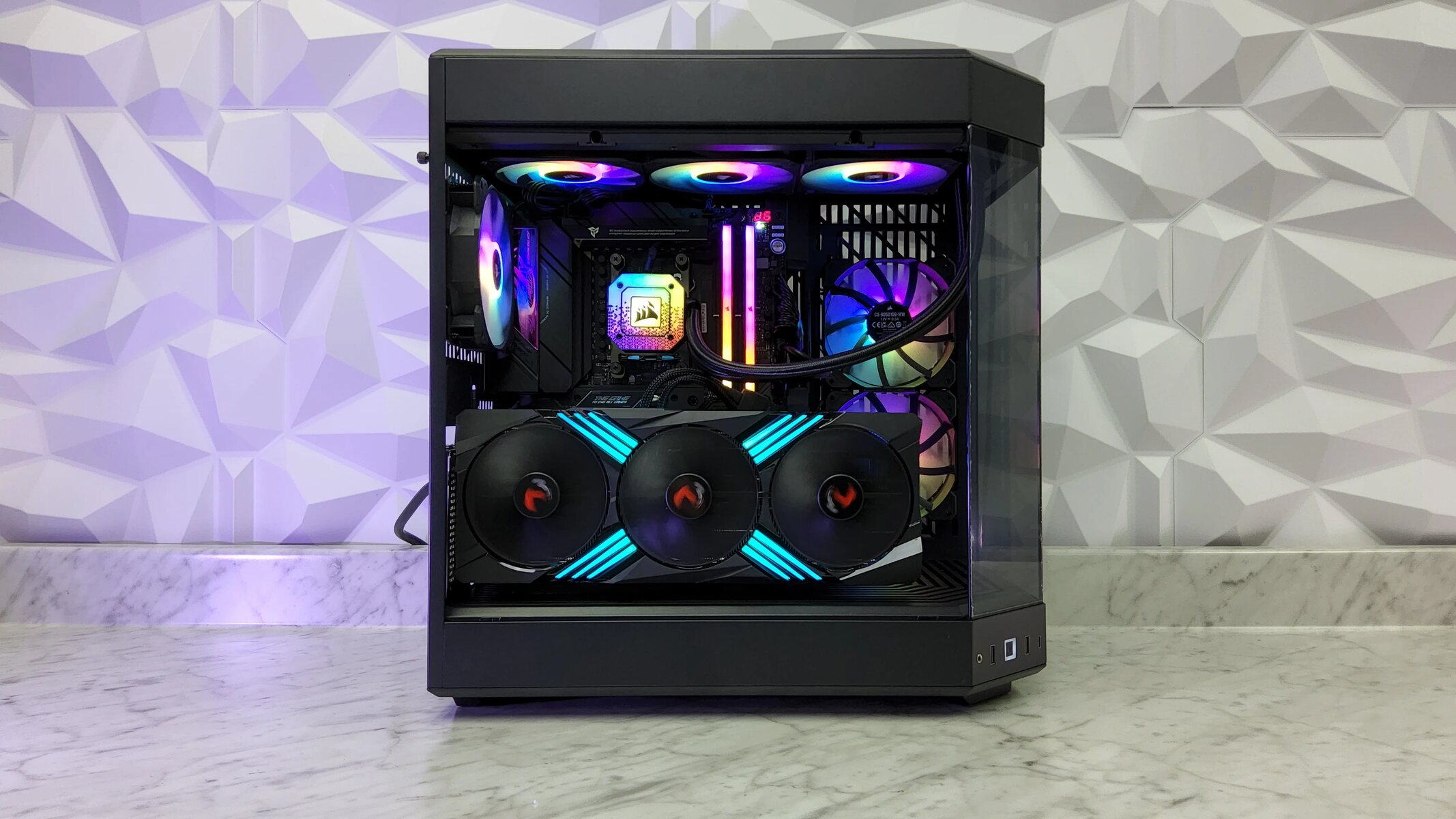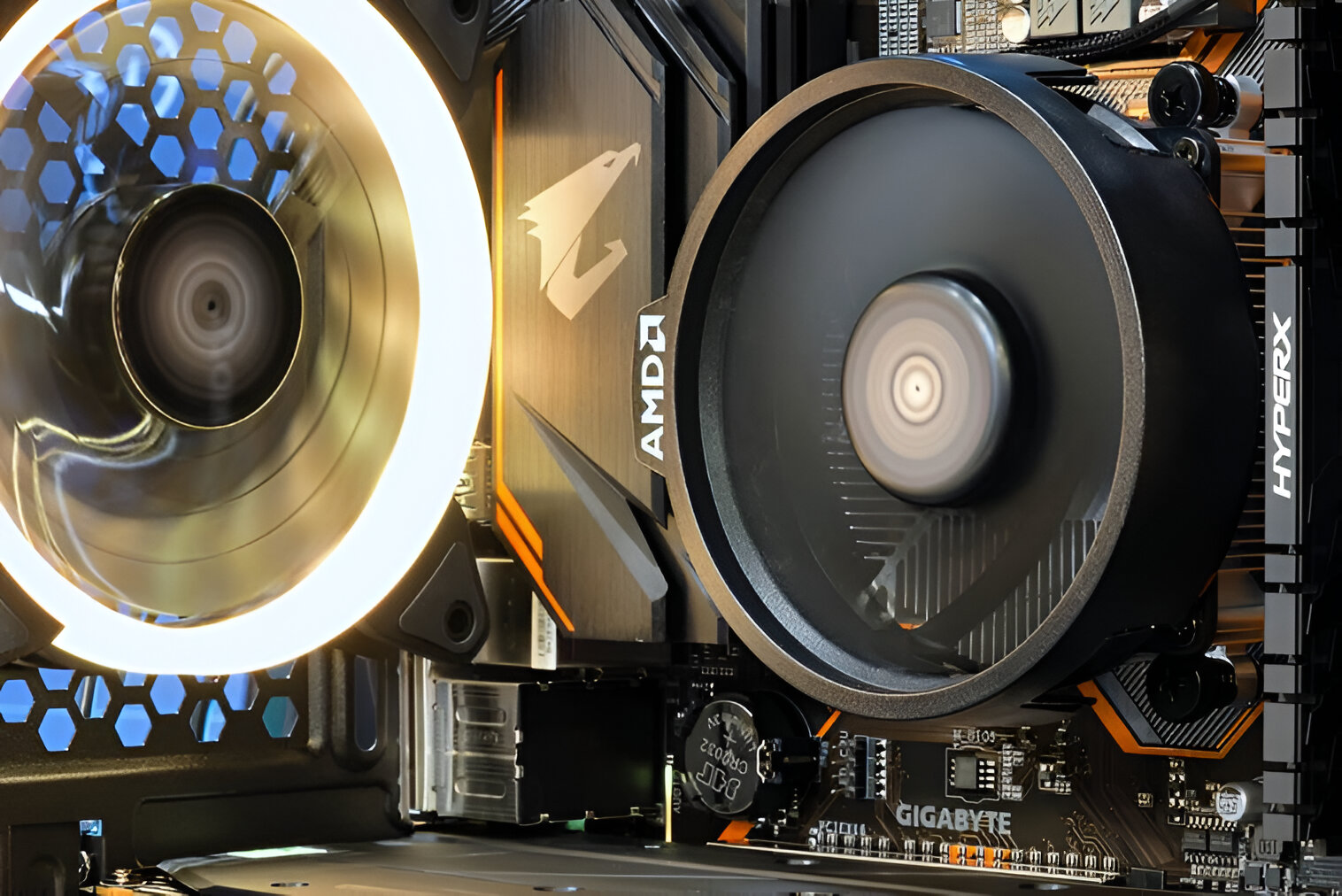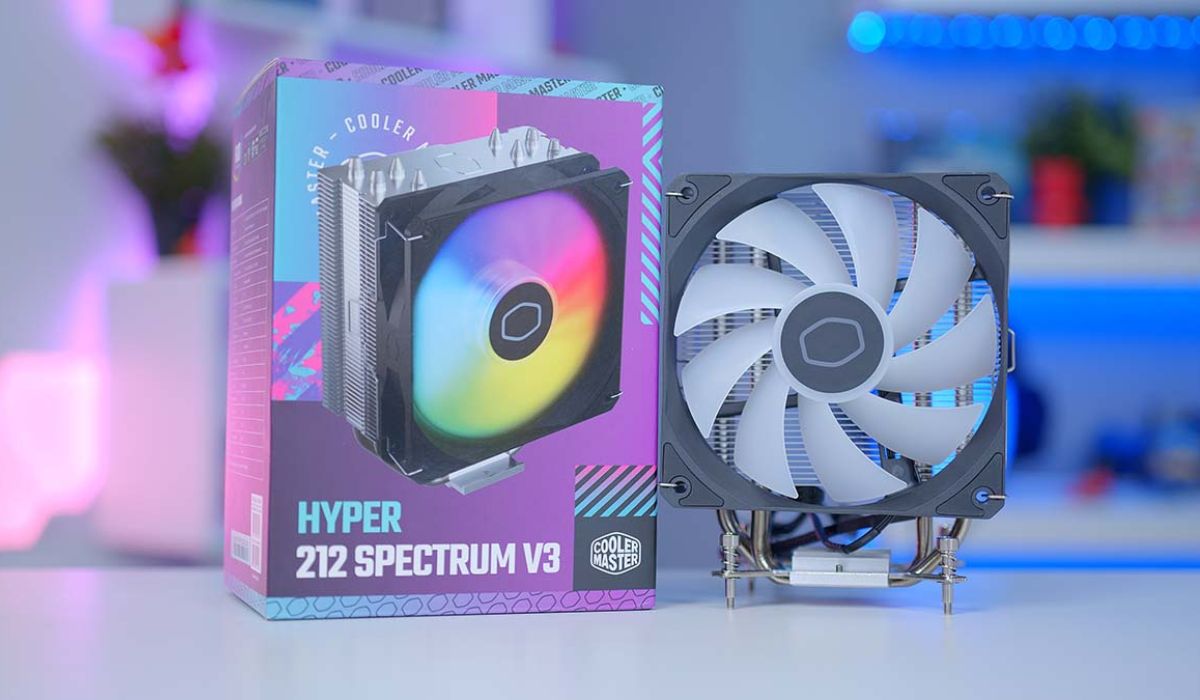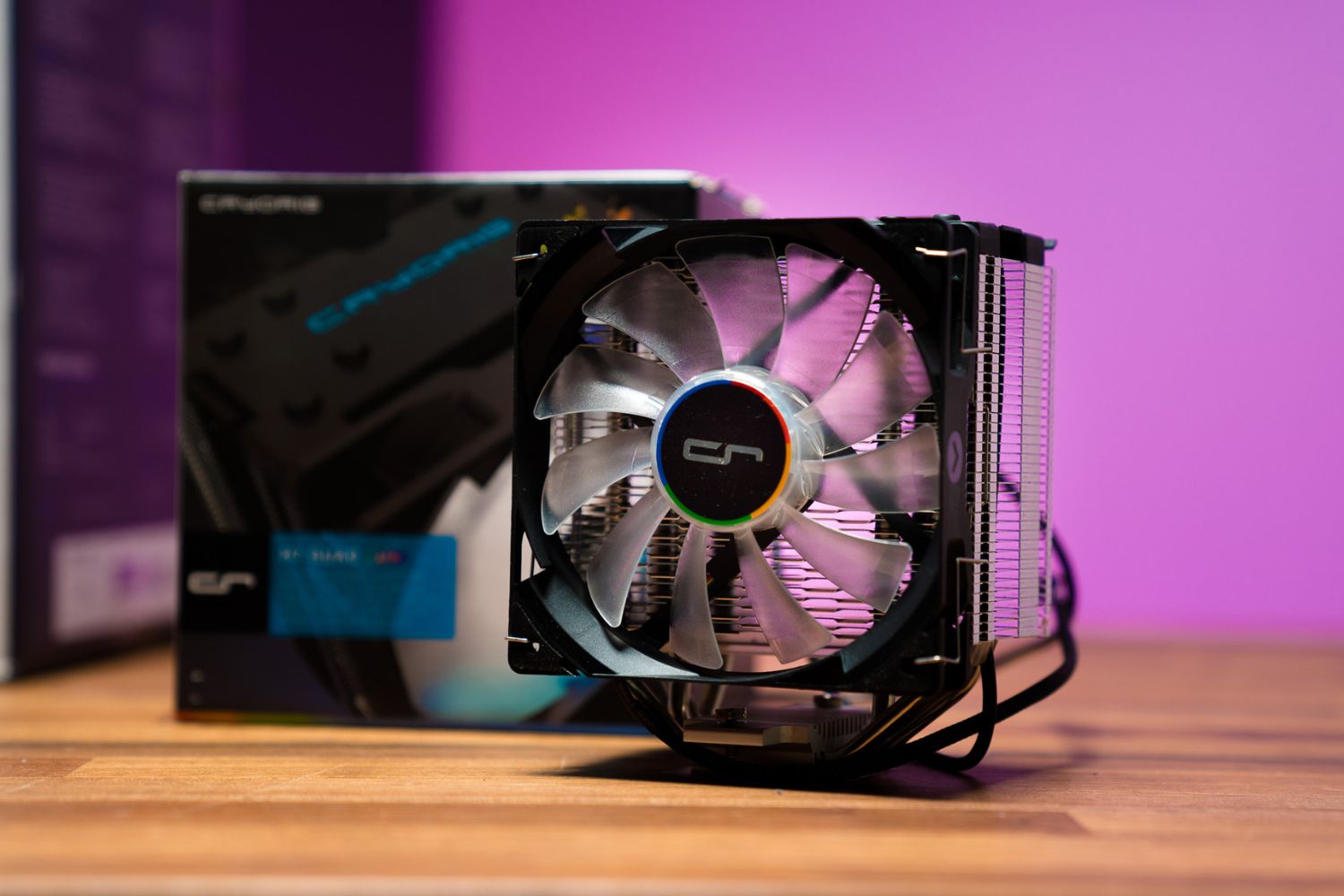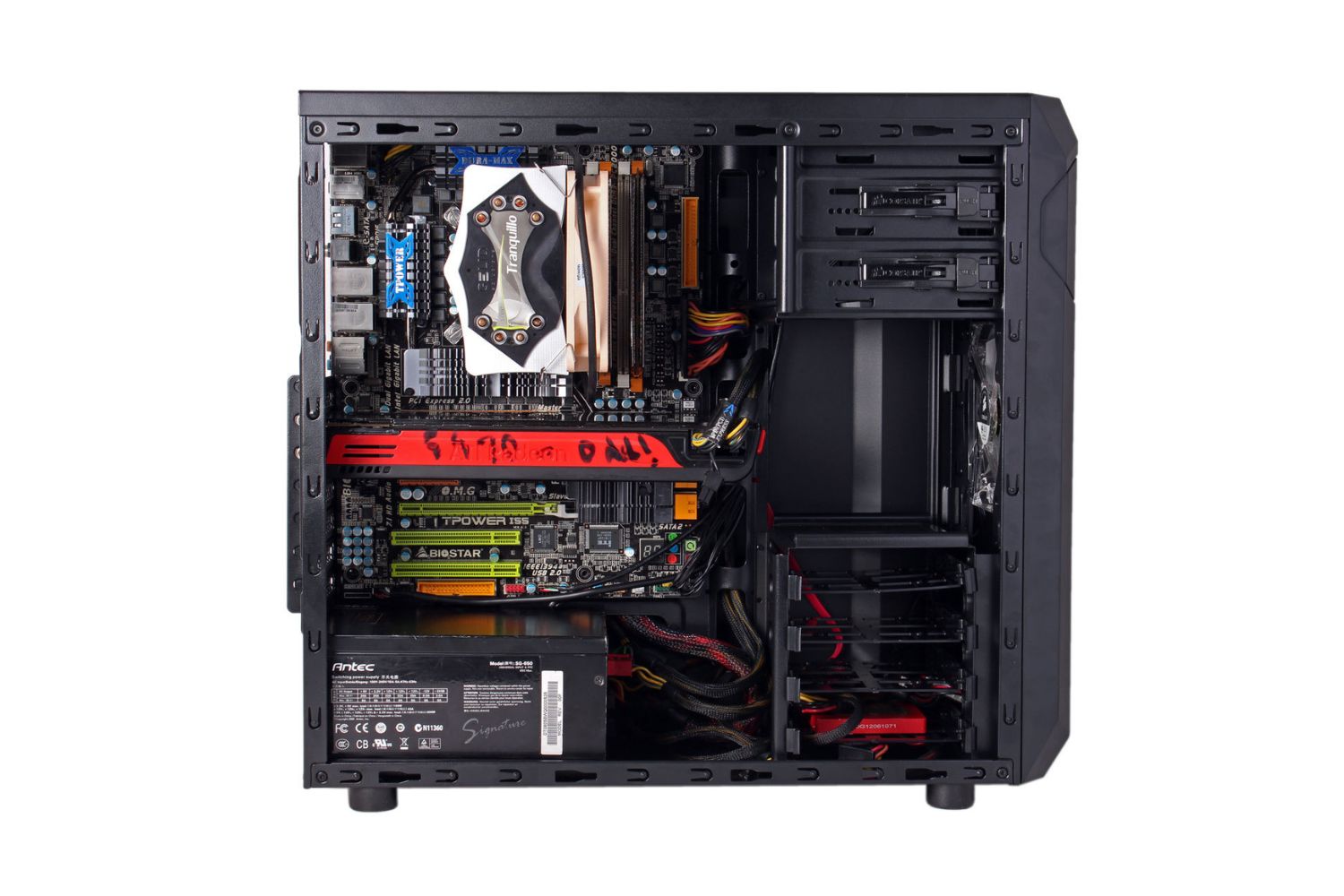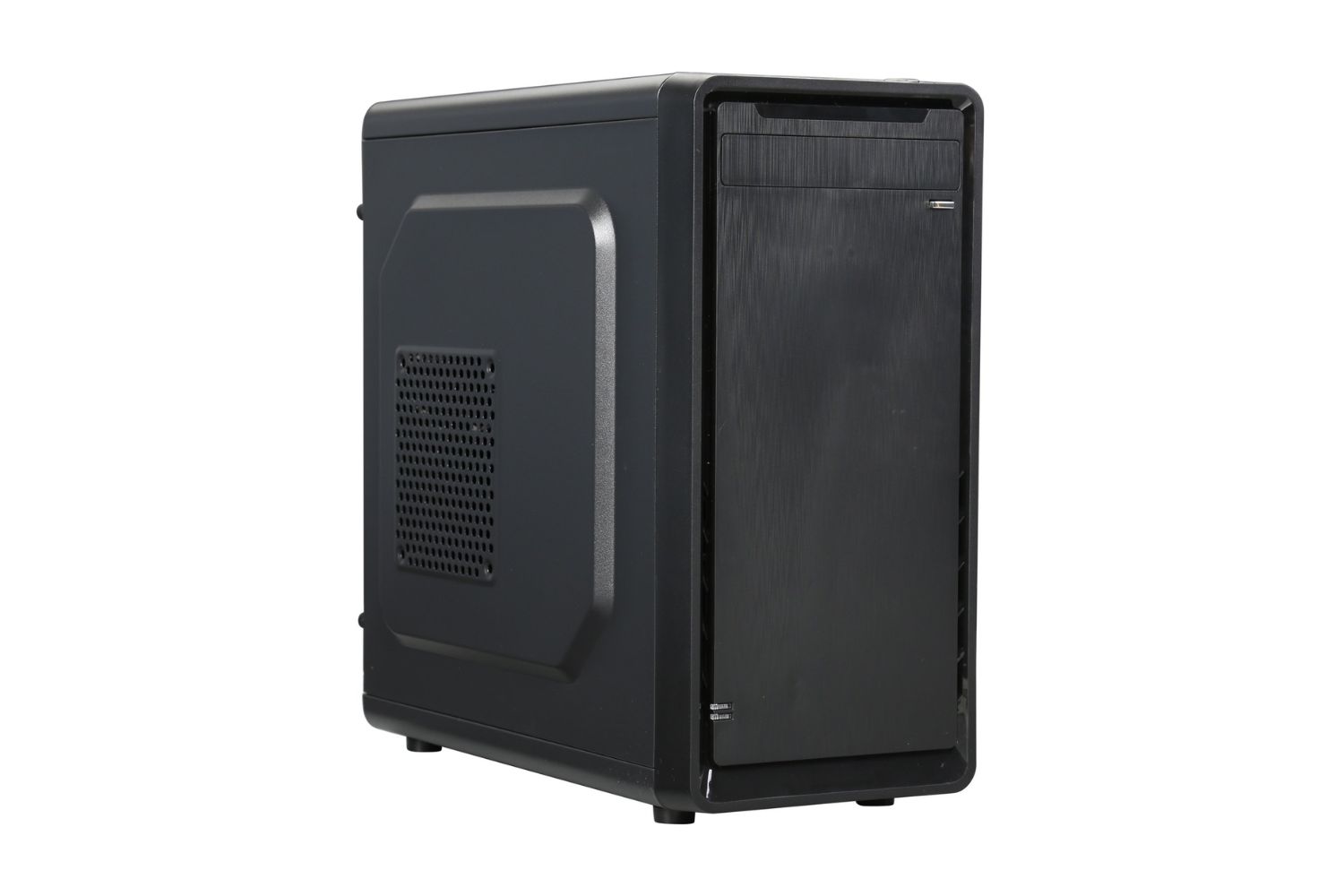Introduction
The Ophion case is a popular choice among PC enthusiasts for its sleek design and compact size, making it a great option for those looking to build a powerful rig without sacrificing space. However, one important consideration when building a PC in the Ophion case is the choice of CPU cooler. The CPU cooler plays a critical role in maintaining optimal temperatures for the processor, ensuring its longevity and performance.
Choosing the right CPU cooler for the Ophion case can be a bit tricky, as its compact design imposes certain restrictions on the size and dimensions of the cooler. In this article, we will explore the various factors to consider when selecting a CPU cooler for the Ophion case and discuss the different sizes available. Whether you’re a seasoned PC builder or a beginner looking to assemble your first system, this guide will help you make an informed decision and keep your CPU running cool and efficient.
Before we delve into the specifics of CPU cooling for the Ophion case, let’s first understand the importance of proper cooling for your processor. The CPU is the brain of your computer, responsible for executing all the tasks and calculations required for its operation. As the CPU performs these tasks, it generates heat, and if not properly cooled, this heat can lead to thermal throttling, reduced performance, and even permanent damage to the processor.
Therefore, it is crucial to invest in a reliable CPU cooler that effectively dissipates heat and maintains the temperature within safe limits. However, due to the compact nature of the Ophion case, certain limitations need to be considered when selecting a CPU cooler that fits perfectly without obstructing other components or compromising the overall performance of your system.
In the following sections, we will discuss the size restrictions of the Ophion case and delve into the various CPU cooler sizes available in the market. We will also provide recommendations on CPU cooler sizes that would be suitable for the Ophion case. So, let’s dive in and find the perfect CPU cooler for your Ophion build.
The Ophion Case: An Overview
The Ophion case is a sleek and compact case designed to accommodate high-performance PC builds in a small form factor. Developed by the renowned PC case manufacturer Raijintek, the Ophion offers a stylish and minimalist aesthetic while providing ample space for powerful hardware configurations.
One of the standout features of the Ophion case is its compact dimensions, measuring just [insert dimensions]. This compact size allows for easy transportation and placement in tight spaces, making it an ideal choice for LAN parties or setups with limited desk space.
Despite its small form factor, the Ophion case doesn’t compromise on functionality. It offers excellent compatibility with hardware components, implementing smart design choices to maximize usability. The case supports Mini-ITX motherboards and can accommodate high-end graphics cards with a length of up to [insert length] and a width of up to [insert width]. It also provides sufficient space for multiple storage drives, including 2.5-inch SSDs and 3.5-inch HDDs.
In terms of cooling, the Ophion case features a well-planned ventilation system. It includes multiple fan mounting points strategically positioned to ensure efficient airflow and heat dissipation. The case is designed to support both air cooling and liquid cooling setups, allowing users to choose the cooling solution that best suits their requirements.
In addition to its practical features, the Ophion case boasts a visually appealing design. With its tempered glass side panel, clean lines, and brushed aluminum finish, the case exudes elegance and sophistication. It also features convenient front I/O ports, including USB 3.0, audio jacks, and power/reset buttons, providing easy access for connecting peripherals.
Whether you’re a PC enthusiast looking to build a compact and powerful gaming rig or a creative professional in need of a compact workstation, the Ophion case offers the perfect blend of style and functionality. Its compact size, hardware compatibility, efficient cooling, and aesthetically pleasing design make it a top choice for those seeking a compact PC case without compromising on performance.
The Importance of CPU Cooling
When it comes to maximizing the performance and lifespan of your CPU, proper cooling is essential. The CPU, or Central Processing Unit, is the heart of your computer and handles all the calculations and tasks necessary for your system to function. As the CPU processes information, it generates heat, and without adequate cooling, this heat can become a significant issue.
High temperatures can have detrimental effects on your CPU. It can lead to thermal throttling, which reduces the performance of your processor to prevent overheating. This results in slower computations and reduced responsiveness, negatively impacting your overall computing experience. Moreover, prolonged exposure to high temperatures can also shorten the lifespan of your CPU, potentially leading to premature failure.
Proper CPU cooling is particularly important for those who engage in resource-intensive tasks, such as gaming, video editing, or 3D rendering. These activities put a significant strain on the CPU, generating more heat than basic tasks like web browsing or word processing. Inadequate cooling in such scenarios can cause the CPU to overheat quickly, leading to performance drops and potential instability.
There are various methods for cooling your CPU, including air cooling and liquid cooling. Air cooling involves the use of a heat sink and fan combination to dissipate heat away from the CPU. This is a popular and cost-effective choice for most users, as it provides adequate cooling for standard usage scenarios.
Liquid cooling, on the other hand, utilizes a closed-loop system or a custom loop with coolant flowing through pipes or tubes to carry heat away from the CPU. Liquid cooling is more efficient at dissipating heat compared to air cooling, making it a preferred option for hardcore gamers and overclocking enthusiasts who push their CPUs to the limits.
Investing in a high-quality CPU cooler not only ensures optimal performance but also helps maintain stability and extend the lifespan of your processor. It enables you to push your CPU to its maximum potential without worrying about excessive heat buildup.
In the following sections, we will explore the size restrictions of the Ophion case and discuss the different CPU cooler sizes available to help you find the perfect cooling solution for your Ophion build. So, let’s dive in and discover the CPU cooler sizes that fit the Ophion case like a glove.
Factors to Consider When Choosing a CPU Cooler for Ophion
When selecting a CPU cooler for your Ophion case, there are several important factors to consider. Each factor plays a crucial role in ensuring compatibility, effective cooling, and optimal performance. Let’s take a closer look at these factors:
- Size and Compatibility: The compact size of the Ophion case means that size restrictions apply when choosing a CPU cooler. Ensure that the cooler has a form factor that fits within the case dimensions without interfering with other components. Check the manufacturer’s specifications for height and width restrictions to ensure compatibility.
- Cooling Performance: Consider the cooling performance of the CPU cooler. Look for coolers with larger heatsinks and efficient fans or liquid cooling systems that offer adequate heat dissipation capabilities. Depending on your usage, choose a cooler that can handle the thermal demands of your CPU effectively.
- Noise Level: Another key consideration is the noise level produced by the CPU cooler. Opt for coolers with low noise levels, especially if you value a quiet computing experience. Look for fans or liquid cooling systems with low decibel ratings to ensure a peaceful environment while working or gaming.
- Power Consumption: Consider the power consumption of the CPU cooler, as it will impact the overall power draw of your system. Look for energy-efficient coolers that don’t place excessive strain on your power supply unit, ensuring stable performance and avoiding potential issues with power delivery.
- Overclocking Support: If you plan to overclock your CPU for increased performance, make sure the cooler you choose can handle the additional thermal load associated with overclocking. Look for CPU coolers specifically designed for overclocking purposes, as they often offer superior cooling capabilities to handle the increased heat generated.
- Budget: Finally, consider your budget when selecting a CPU cooler for your Ophion case. CPU coolers come in a wide range of prices, from budget-friendly options to high-end models. Determine your cooling needs and find a balance between cost and performance to ensure you’re getting the best value for your money.
By considering these factors, you can make an informed decision and select a CPU cooler that perfectly matches your Ophion case, ensuring efficient heat dissipation, optimal performance, and a satisfying computing experience. In the next section, we will explore the specific size restrictions of the Ophion case to help you choose the right CPU cooler dimensions.
Size Restrictions of the Ophion Case
When selecting a CPU cooler for the Ophion case, it is crucial to consider the size restrictions imposed by the case’s compact design. Since the Ophion is a small form factor case, there are limitations on the dimensions of the CPU cooler that can be installed. Understanding these size restrictions will ensure that your CPU cooler fits within the case without obstructing other components or causing clearance issues.
The Ophion case has specific limitations on the height, width, and length of the CPU cooler. It is essential to check the manufacturer’s specifications to determine the maximum allowable dimensions. Typically, the maximum CPU cooler height for the Ophion case ranges from [insert height] to [insert height]. Make sure to consider the height of the CPU cooler along with the height of the RAM modules to avoid interference.
The width of the CPU cooler is also a crucial factor to consider. The Ophion case usually allows for CPU coolers with a maximum width of [insert width]. It is essential to ensure that the CPU cooler’s width does not overlap with other components, such as the graphics card or motherboard heatsinks, as this can cause compatibility issues.
The length of the CPU cooler is another restriction to consider. The Ophion case typically allows for CPU coolers with a maximum length of [insert length]. It is important to measure the available space in the case and choose a CPU cooler that fits comfortably without obstructing the installation of other hardware components or impeding the airflow within the case.
Considering the size restrictions of the Ophion case is crucial to ensure a proper fit and optimal functionality of your CPU cooler. It is recommended to consult the case’s manual or the manufacturer’s website to obtain accurate information on the allowable dimensions for CPU coolers. This will help you select a CPU cooler that meets the size restrictions while providing efficient cooling for your processor.
In the next section, we will delve into the different CPU cooler sizes available in the market to provide you with a better understanding of the options that align with the size restrictions of the Ophion case.
Common CPU Cooler Sizes Explained
When choosing a CPU cooler for your Ophion case, it’s essential to understand the various sizes available in the market. CPU coolers come in different form factors and dimensions, and knowing the common sizes will help you make an informed decision. Let’s explore the most common CPU cooler sizes:
- Low Profile: Low profile CPU coolers are designed specifically for compact cases with limited space. These coolers have a small form factor, often with a height of around 1.5 to 2.5 inches. They are ideal for small form factor cases like the Ophion, where height restrictions apply. While low profile coolers may not provide the same level of cooling performance as larger models, they are still efficient for most standard usage scenarios.
- 120mm / 140mm: These CPU coolers utilize a single fan with a standard size of either 120mm or 140mm. They offer a decent balance between cooling performance and size, making them popular choices for both compact and mid-sized cases. 120mm and 140mm CPU coolers typically have a height ranging from 5 to 6 inches, making them compatible with many case and motherboard configurations.
- Tower: Tower coolers are larger CPU coolers that provide excellent cooling performance. They feature a tall vertical heatsink with multiple heat pipes and one or two fans for efficient heat dissipation. Tower coolers are suitable for mid-sized to full-sized cases, offering superior cooling capabilities for overclocking or heavy workloads. These coolers can have heights ranging from 6 to 8 inches or more.
- All-in-One Liquid Cooler (AIO): AIO liquid coolers consist of a pump, radiator, and one or more fans. These coolers offer superior cooling performance compared to air coolers, making them popular among enthusiasts and gamers. AIO coolers come in various sizes, with radiator lengths ranging from 120mm to 360mm or more. Depending on the radiator size, these coolers can have different fan configurations and cooling capacities.
- Custom Loop Liquid Cooler: Custom loop liquid cooling systems provide the ultimate cooling performance, but they require more careful planning and maintenance. These systems involve custom-designed water blocks, reservoirs, pumps, and radiators that are tailored to fit your specific needs. Custom loop systems offer exceptional cooling capabilities for enthusiasts and those looking to push their CPU to the absolute limit.
By understanding the common CPU cooler sizes and their respective characteristics, you can choose the most suitable cooler for your Ophion case. Consider the size restrictions of your case and the cooling requirements of your CPU before making a decision. In the next section, we will provide recommendations on CPU cooler sizes that are compatible with the Ophion case.
Recommended CPU Cooler Sizes for Ophion
When it comes to selecting a CPU cooler for your Ophion case, it’s important to choose a size that fits within the case’s restrictions while providing efficient cooling for your processor. Based on the size limitations of the Ophion case and considering the cooling requirements of your CPU, here are a few recommended CPU cooler sizes:
- Low Profile Cooler: If you’re working with a particularly compact Ophion build and have limited clearance, a low profile CPU cooler is a great choice. Low profile coolers are designed to fit in small form factor cases and offer adequate cooling for standard usage scenarios. Look for coolers with heights ranging from 1.5 to 2.5 inches to ensure compatibility with the Ophion case.
- 120mm / 140mm Cooler: For most mid-sized Ophion builds, a 120mm or 140mm CPU cooler is a reliable option. These coolers strike a good balance between size and performance, and their dimensions typically fit well within the design of the Ophion case. Look for coolers with heights ranging from 5 to 6 inches and make sure they align with the size restrictions mentioned earlier.
- Tower Cooler: If you require more extensive cooling capabilities for tasks like gaming or intensive workloads, a tower cooler is a recommended choice. Tower coolers provide excellent cooling performance and are suitable for mid-sized to full-sized Ophion builds. Look for coolers with heights ranging from 6 to 8 inches or more, depending on your specific cooling requirements.
- All-in-One Liquid Cooler (AIO): If you prioritize liquid cooling and want superior cooling performance, an AIO liquid cooler is an excellent option. AIO coolers offer efficient heat dissipation and are compatible with the Ophion case. Look for AIO coolers with radiator lengths ranging from 120mm to 360mm, depending on the available space in your case and your desired level of cooling performance.
- Custom Loop Liquid Cooler: If you’re an enthusiast seeking ultimate cooling performance, a custom loop liquid cooling system provides unparalleled capabilities. However, it requires more planning and maintenance. When considering a custom loop, ensure you have sufficient space within the Ophion case to house the necessary components such as water blocks, radiators, and reservoirs.
Remember to check the specifications and dimensions of the CPU coolers you are interested in to confirm their compatibility with the Ophion case. Additionally, consider factors such as cooling performance, noise levels, and your budget to make a well-informed decision.
By selecting a CPU cooler size that aligns with the restrictions of the Ophion case and meets your cooling needs, you can ensure efficient heat dissipation and optimize the performance of your CPU. In the next section, we will conclude our discussion on choosing the right CPU cooler for your Ophion build.
Conclusion
Choosing the right CPU cooler for your Ophion case is crucial for maintaining optimal performance, preventing overheating, and ensuring the longevity of your processor. By considering the size restrictions of the Ophion case and the various factors involved in selecting a CPU cooler, you can make an informed decision that suits your specific needs.
Throughout this article, we have discussed the importance of CPU cooling and the role it plays in maintaining the performance and lifespan of your CPU. We explored the size restrictions of the Ophion case and highlighted common CPU cooler sizes available in the market. Additionally, we provided recommendations for CPU cooler sizes that are compatible with the Ophion case.
Remember to consider factors such as size and compatibility, cooling performance, noise levels, power consumption, overclocking support, and your budget when choosing a CPU cooler. Each of these factors will contribute to the overall effectiveness and satisfaction you derive from your PC build.
Whether you opt for a low-profile cooler, a 120mm / 140mm cooler, a tower cooler, an AIO liquid cooler, or even a custom loop liquid cooler, ensure that it meets the size requirements of your Ophion case. Balance your cooling needs with the available space and your desired level of performance.
Ultimately, selecting the right CPU cooler for your Ophion build will help you achieve optimal cooling efficiency, ensuring that your processor operates at its best for demanding tasks like gaming, content creation, and more. By investing in effective CPU cooling, you can safeguard your investment and enjoy a stable and powerful computing experience.
Take the time to research, compare different options, and read user reviews to find a CPU cooler that strikes the perfect balance between size, performance, and cost. By doing so, you’ll be well on your way to creating a high-performance PC build that meets your needs, all housed within the sleek and compact Ophion case.









